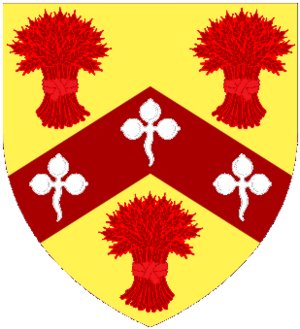Andrew Reed (police officer) facts for kids
Sir Andrew Reed (26 September 1837 – 7 November 1914) was an important figure in Ireland. He was a barrister (a type of lawyer) and later became the Inspector-General of the Royal Irish Constabulary, which was the police force in Ireland at the time.
Early Life and Career
Andrew Reed was born in Galway, Ireland, in 1837. His father was John Reed and his mother was Mary Adamson. He studied at Queen's University Belfast. In 1873, he became a barrister, meaning he could practice law.
Soon after, he joined the Royal Irish Constabulary (RIC). In 1859, he became a District Inspector. He worked his way up through the ranks and became the Inspector-General in 1885. This was the highest position in the police force. He retired from his job in 1900.
Making the Police Force Fairer
Sir Andrew Reed was the only officer who started as a cadet (a junior officer) in the RIC to become the Inspector-General. He made a big change to how people were promoted in the police force.
Before he took charge, it was very hard for Catholic officers to get promoted, even though most of the police force was Catholic. Most of the high-ranking officers were not Catholic.
Sir Andrew Reed wanted things to be fair. He created a new rule: every year, 60 Catholic officers who passed the Sergeant's exam would be promoted. This helped to make the police force more equal for everyone.
Awards and Family
Sir Andrew Reed received several important awards for his service. He was made a Knight Bachelor in 1889, which meant he could be called "Sir." He also received other honours like the Companion of the Order of the Bath (CB) in 1892, and the Knight Commander of the Order of the Bath (KCB) in 1897. In 1900, he became a Commander of the Royal Victorian Order (CVO).
His son, Major General Hamilton Lyster Reed, was also a very brave person. He was awarded the Victoria Cross, which is a very high award for bravery, during the Second Boer War.
Later Life
Sir Andrew Reed passed away in Dublin in November 1914. He is buried in Deans Grange Cemetery. On his gravestone, there is a special message that says: "I have no greater joy than to hear that my children walk in truth." This quote comes from the Bible (3 John 4).


